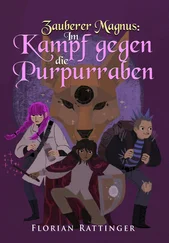Sylvie Germain - Magnus
Здесь есть возможность читать онлайн «Sylvie Germain - Magnus» весь текст электронной книги совершенно бесплатно (целиком полную версию без сокращений). В некоторых случаях можно слушать аудио, скачать через торрент в формате fb2 и присутствует краткое содержание. Год выпуска: 2008, Издательство: Dedalus Ltd, Жанр: Современная проза, на английском языке. Описание произведения, (предисловие) а так же отзывы посетителей доступны на портале библиотеки ЛибКат.
- Название:Magnus
- Автор:
- Издательство:Dedalus Ltd
- Жанр:
- Год:2008
- ISBN:нет данных
- Рейтинг книги:3 / 5. Голосов: 1
-
Избранное:Добавить в избранное
- Отзывы:
-
Ваша оценка:
- 60
- 1
- 2
- 3
- 4
- 5
Magnus: краткое содержание, описание и аннотация
Предлагаем к чтению аннотацию, описание, краткое содержание или предисловие (зависит от того, что написал сам автор книги «Magnus»). Если вы не нашли необходимую информацию о книге — напишите в комментариях, мы постараемся отыскать её.
Magnus — читать онлайн бесплатно полную книгу (весь текст) целиком
Ниже представлен текст книги, разбитый по страницам. Система сохранения места последней прочитанной страницы, позволяет с удобством читать онлайн бесплатно книгу «Magnus», без необходимости каждый раз заново искать на чём Вы остановились. Поставьте закладку, и сможете в любой момент перейти на страницу, на которой закончили чтение.
Интервал:
Закладка:
There is no such confusion in Clemens Dunkeltal, and it is with bitter lucidity that he realizes the extent of the growing danger. Day by day he and his friends lose their arrogance, becoming increasingly tense and irritable, and looking harassed and aggressive. Even his jovial companion Julius Schlack, who brightened so many evenings at their house, and Clemens’ colleague Horst Witzel, a poet in his spare time, who seizes every opportunity to recite long works by Kleist, Goethe, Herder, Hölderin and Schiller, no longer joke or declaim. Suddenly they all change their way of dressing, of greeting each other, of behaving. They abandon their very impressive uniforms, their noisy and solemn salutes, they lower their tone and adopt a less martial attitude. They end up hugging the walls. And so closely do they hug them, they almost seem to walk through them and turn themselves into currents of air.
One night in March the Dunkeltals flee from their home with the stealth of thieves. Holding on to his mother with one hand, Franz-Georg clutches his bear in the other to dispel his fear of the dark and of the unknown. In his mind they are fleeing a dreadful enemy called typhus, which has come from every corner of Europe. Is it the same fever as the one that almost killed him two years ago? If so, his uncles must have died in vain, and the family legend be no more than a delusion.
They head southwards. But the south seems to keep receding, so long is their journey, continually zigzagging in constant panic. They wander through desolate countryside, through towns and villages in ruins, passing hordes of distraught people. Sometimes they take refuge for several days in a cellar or barn. They are hungry but fear assails them even more.
They have lost everything, even their names. They have swopped that of Dunkeltal for Keller: the parents are now called Otto and Augusta Keller, and he simply Franz Keller. Only his bear Magnus is entitled to retain his original identity. The child interprets this absurd alteration in his own way. He tells himself that in the bewildering confusion that now prevails, where the least thing, even a crust of bread, a cigarette butt, becomes a tradeable item, a name too can have an exchangeable value. But exchangeable for what, to what advantage — this he does not understand, and his parents do not really explain, merely forbidding him to make any reference to his real name, the house they have left, the region where they used to live, even his father’s profession. The child listens to these instructions whispered to him in a tone of peremptory secrecy, and obeys without argument. He is meek and reserved by nature, accustomed to living on the margins of adult society, with so much of what they say and do remaining a mystery to him. He keeps to himself his bewilderment, his doubts and questions, and lets them gravely mature in his solitude. But the sight of towns laid waste, of terrified crowds fleeing along roads where unbelievable scenes erupt from time to time as panic reaches fever-pitch, and the roar of planes cutting through the sky cast him into a state of stupefaction and nausea that soon translates into dull pains in his belly, as if all these images of collapse were rotten fruit, bits of contaminated meat ingested through his eyes, ravaging his entrails. At night these distorted images stir in his insides with the heavings of muddy waters and he wakes up crying, curled up round Magnus.
And then his father parts company with them, leaving him and his mother to continue this journey through hell by themselves. He says he will rejoin them as soon as he can but for safety’s sake he still has to hide, and without him they will travel faster. This is true. As soon as his father goes his own way, the endless journey improves, as if they had been relieved of a burden hampering their southward progress. All the same this separation is painful for the child.
Augusta Keller and her son Franz come to a small town that even a few weeks ago must have been very pretty. Now it is no more than ruins on the edge of a lake. Here, their wandering finally comes to an end and their wait for his father’s arrival begins.
Note
Friedrichshafen: a town in south-west Germany, situated on the northern shores of Lake Constance.
In the 19th century the town served as a summer residence for the Württemberg royal family.
The town’s history is marked by Ferdinand von Zepplin, who at the end of the 19th century set up production here of airships or dirigible balloons of rigid type.
Important industrial centre in the early 20th century (construction of aeroplane engines).
At the end of the Second World War the town was the target of heavy aerial bombing by the Allies; the old town was almost totally destroyed.
Fragment 5
Augusta Keller proves to be a dour double of friendly Thea Dunkeltal. She has lost her lovely house, her social status and her circle of acquaintances, every one of whom deferred with great compassion and respect to her deep mourning for her two young brothers, sacrificed so that the Reich might be vastly extended in time and space. Above all she has lost the dream of grandeur that helped her to bear with courage a sister’s grief for the loss of her younger siblings, heroes whose frozen bodies, lying unburied somewhere in the East, in a land of snow and barbarism, must have been devoured by stray dogs or wolves.
The Führer is dead, the clarion-voiced incarnation of this dream of splendour himself, and with him, after a derisory dozen years, the thousand-year Reich has foundered. Nothing is left of her two combined passions, patriotic and fraternal, nothing but ruins, ashes and bones. She has just seen her nation pass overnight from triumph to catastrophe, the country’s beautiful towns collapse like smoking ant-hills, and her people, once so proud, reduced to bands of fugitives steeped in fear, poverty and shame. She feels outrageously cheated, robbed, and as the days go by her plight is poisoned with bitterness. But she is strong, determined to fight for survival, and she girds herself with patience to await the return of her husband. Thanks to relatives of his in Friedrichshafen, she finds a room where she can stay with her son, in a part of town away from the centre spared by the bombings, and a job as a cook in a hospital. The salary is derisory but the position ideal for scrounging enough to avoid dying of hunger.
Despite her tiredness she still finds time in the evenings to tell her son stories. She knows that everything he has seen in the course of their journey through scenes of devastation has traumatized him. Every night he wakes with a start, cries out, wails. Then she takes him in her arms, cradles him to her body, and recounts in a quiet voice the much-repeated yet sadly belied family saga. She embroiders, illumines the past, blotting out as much as she can the memories of recent weeks and promising a radiant future. As soon as his father returns, everything will get better. Life will resume as before, elsewhere and different of course, but as before, yes, even better than before. She thrills as much as the child to the tales she weaves in the darkness of their wretched room.
And the days go by, at once dreary and fraught, oppressive days of waiting, of feeling bereft and anxious. But sustained with hope. One autumn evening his father finally reappears — or rather the shadow of his father. Otto Keller is not even an enfeebled double of powerful Clemens Dunkeltal but a pathetic imitation. He has shrunk into a grimy fugitive, grown very thin, ill-shaven, the look in his eyes that of a hunted animal, a vicious beast. Franz observes with dismay his king of darkness overthrown, drained of his power, shorn of all magic. Can he even sing any more with his poor lanky stooped body? What has become of the night sun that resounded voluptuously in his chest? Has he swopped that too, like his name, his watch and so many other things, for food or false papers? But the joy of seeing him again, still alive, outweighs the mortification of finding him so reduced. The child stays with him as much as he can, expressing with his eyes what his lips dare not articulate: not to worry about any of this, that most of all he still loves him, perhaps even more than before. Yes, more, because pity for his father now outweighs the fear Dunkeltal used to inspire in his son in his days of glory. And at least now his father does not go away any more as he did when he had important responsibilities. He remains most of the time locked in their room, only rarely venturing out and always after nightfall.
Читать дальшеИнтервал:
Закладка:
Похожие книги на «Magnus»
Представляем Вашему вниманию похожие книги на «Magnus» списком для выбора. Мы отобрали схожую по названию и смыслу литературу в надежде предоставить читателям больше вариантов отыскать новые, интересные, ещё непрочитанные произведения.
Обсуждение, отзывы о книге «Magnus» и просто собственные мнения читателей. Оставьте ваши комментарии, напишите, что Вы думаете о произведении, его смысле или главных героях. Укажите что конкретно понравилось, а что нет, и почему Вы так считаете.












